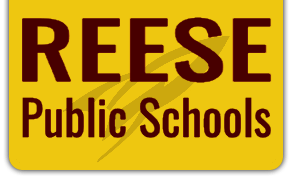SERIES 5000: STUDENTS, CURRICULUM, AND ACADEMIC MATTERS
5700 Student Health and Safety
5707 School Wellness Policy
The District is committed to providing a school environment that enhances opportunities for learning and lifelong wellness.
A. Nutrition Promotion and Education Goals
All students will receive nutrition education annually that is aligned with the Michigan Health Education Grade Level Content Expectations and the Michigan Merit Curriculum Guidelines for Health Education. Teaching healthy eating behaviors will be part of the curriculum.
The District promotes healthy food and beverage choices for students. The District will implement evidence-based healthy food promotion techniques through:
- offering school meal programs; and
- publicizing foods and beverages that meet or exceed the USDA Smart Snacks in School nutrition standards. The District will collaborate with public and private entities to promote student wellness.
The District will make water available to students throughout the school day.
B. Physical Activity Goals
The District will offer physical education programs that are designed to equip students with the knowledge, skills, and values necessary for lifelong physical activity. Physical education instruction will be aligned with the Michigan Physical Education Grade Level Content Expectations and the Michigan Merit Curriculum Guidelines for Physical Education.
Students will have the opportunity to participate regularly in supervised physical activities, either organized or unstructured, intended to maintain physical fitness and an understanding of the benefits of a physically active and healthy lifestyle.
The District strives to provide physical activity breaks for all students, including recess for elementary students and before and after school activities, and encourages students to use active transport (e.g., walking, biking).
The District encourages parents/guardians to support their students’ participation in physical activity, to be physically active role models, and to include physical activities in family events.
C. Goals for Other School-Based Activities Designed to Promote Student Wellness
The District may partner with community members or groups to implement this Policy. The District will also:
- participate in state and federal child nutrition programs as appropriate;
- allow other health-related entities to use school facilities for activities such as health clinics, screenings, and wellness events consistent with Policy 3304;
- use evidence-based strategies to develop, structure, and support student wellness; and
- create environments conducive to healthy eating, physical activity, and conveying consistent health messages.
D. Standards and Nutrition Guidelines for All Foods and Beverages Sold to Students on the School Campus and During the School Day
The District will ensure that students have access to foods and beverages that comply with applicable laws and guidelines including, but not limited to, the USDA Nutrition Standards for School Meals and the USDA Smart Snacks in School nutrition standards.
The District will offer students a variety of age-appropriate, healthy food and beverage selections including fruits, vegetables, and whole grains aimed at meeting the nutrition needs of students within their calorie requirements to promote student health and reduce childhood obesity.
E. Standards for All Foods and Beverages Provided, But Not Sold, to Students During the School Day
The District may provide a list of healthy food and beverage alternatives to parents/guardians, teachers, and students for classroom parties, rewards and incentives, or classroom snacks. The District discourages the use of unhealthy food and beverages as a reward or incentive for performance or behavior.
F. Food and Beverage Marketing
Marketing and advertising is allowed on school grounds or at school activities only for foods and beverages that meet or exceed the USDA Smart Snacks in School nutrition standards. Food and beverage fundraising and marketing that occurs at events outside of school hours need not comply with the USDA Smart Snacks in School nutrition standards.
In-school fundraising events must comply with Policy 5501 and MDE’s Non-
Compliant Food Fundraiser Guidance, which permits 2 fundraisers per week, per
school building that do not comply with USDA Smart Snacks in School nutrition
standards. In-school fundraising events may last up to 1 day and may not be held
in the food service area during meal times. Equipment that currently displays noncompliant marketing materials (e.g., scoreboard with soft drink logo) need not be immediately removed or replaced. As the District reviews and considers new contracts and as durable equipment, like scoreboards, is replaced or updated, any food or beverages marketed and advertised will meet or exceed the USDA Smart Snacks in School nutrition standards.
G. Wellness Committee
The District will form a Wellness Committee to establish goals for, oversee, and periodically review and update school health policies and programs. The Wellness Committee will also oversee this Policy’s implementation.
The Wellness Committee will represent all school buildings and include, to the extent possible, parents/guardians, students, food service representatives, physical and health education teachers, school and community health care professionals, and community members. The Board encourages community participation in the Wellness Committee. When possible, membership will also include Supplemental Nutrition Assistance Program education coordinators.
H. Implementation and Oversight
The Superintendent or designee is responsible for ensuring that each school building complies with this Policy.
The Board will review this Policy at least every 3 years to determine compliance, progress, and the extent to which this Policy compares to model school wellness policies. Parents/guardians, students, school employees, school health professionals, Board members, and community members may provide input to the District during the Wellness Policy review process.
A copy of this Policy will be maintained in the District’s administrative offices and posted on the District’s website. The Superintendent or designee will maintain all legally required documentation for implementation of this Policy.
The Superintendent or designee will annually provide notice about this Policy and any updates to the community.
I. School Meal Program
- Delinquent Meal Charge Debt and Bad Debt
The District is required to make reasonable efforts to collect unpaid meal charges of current students. The building principal or designee will contact households about unpaid meal charges and may establish payment plans and due dates by telephone, e-mail, or other written or oral communication. If these collection efforts are unsuccessful, the District may pursue any other methods to collect delinquent debt of current students as allowed by law. Collection efforts may continue into a new school year.
Unpaid meal charges of inactive students, such as graduated students and students no longer enrolled at the District, that are not collected by the end of the school year will be classified as bad debt. No later than December 31 of the following school year, non-federal funds will be used to reimburse the school meal program for the amount of bad debt.
2. Elimination of “Lunch Shaming”
The District will strive to eliminate any form of “lunch shaming.” “Lunch shaming” is the public identification or stigmatization of students who cannot pay for a school meal. In furtherance of this goal, the District prohibits the following:
a. requiring a student who cannot pay for a school meal or who has unpaid meal charges to wear a wristband or handstamp;
b. requiring a student to dispose of a meal after it has been served because the student cannot pay for the meal or has unpaid meal charges;
c. communicating directly with a student about unpaid meal charges unless the District has attempted but has been unable to contact the student’s parent/guardian by telephone, e-mail, or other written or oral communication;
d. requiring a student to perform chores or other labor to pay a student meal debt; and
e. discussing a student’s unpaid meal charges in the presence of other students.
Date adopted: 08/09/21
Date revised: 10/16/23


